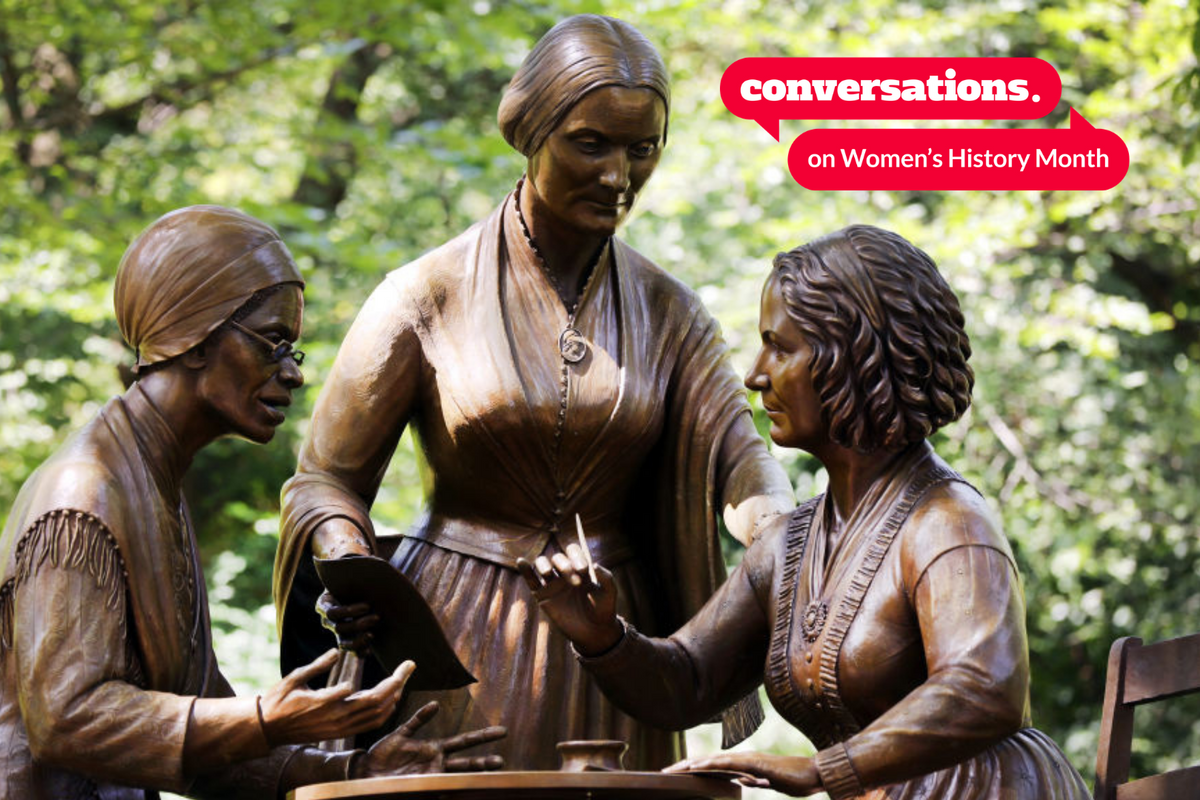Elizabeth Cady Stanton and Lucretia Mott prove why everyone should truly understand intersectionality
If your feminism isn't intersectional, then it isn't truly feminism.

With Women's History Month in full swing, it's important we reflect on the individuals who accomplished so much regarding equality and justice within our nation. We would be doing ourselves a disservice if we didn't include female pioneers Elizabeth Cady Stanton and Lucretia Mott within that category. Besides, we couldn't think of two better individuals to feature than two of the individuals who spearheaded the fight for women's suffrage within the United States.
For those who are unaware, or simply uninterested in women's history, Stanton and Mott were committed abolitionists who were among five women who organized the Seneca Falls Convention, later inspiring the National Women's Rights Convention. In fact, many historians believe the Seneca Falls Convention was the birthplace of the women's rights movement in America.
Stanton and Mott initially met at London's World Anti-Slavery Convention in 1840, ten years before the first Seneca Falls and the two immediately hit it off. It was during the Seneca Falls Convention when Stanton introduced the Declaration of Sentiments and Grievances, similarly modeled closely off the Declaration of Independence. The only difference was Stanton included "women" to its preamble writing, "We hold these truths to be self-evident: that all men and women are created equal…"
Contrary to popular belief, the United States doesn't solely consist of men. Why not include both genders in a pronouncement proclaiming equality and justice for the entire nation? In addition, Stanton outlined the injustices, inequities, and invisibilities American women experienced, ending the Declaration with a call for action.

The Declaration of Sentiments and Grievances was eventually ratified by an assembly which included famous abolitionist Frederick Douglass. Twelve resolutions were passed, including the ninth resolution proclaiming women's right to vote. After the success from the first convention, similar woman's rights conventions began occurring annually throughout the United States, centering heavily on women's suffrage. In 1869, Stanton founded the National Woman Suffrage Association (NWSA), and served as its president alongside Susan B. Anthony.
The 19th Amendment was passed 70 years later, solidifying women's right to vote within the U.S. In 2016, the U.S. Treasury announced they would redesigned the $10 bill to include Stanton, Mott, Anthony, Alice Paul and Sojourner Truth; five of the powerful women who contributed to the women's suffrage movement.
What inspires me most about Stanton and Mott wasn't just their devotion to women's suffrage, it was their commitment towards elevating and empowering the voices of all women throughout the U.S. Rather than catering to their own demographic, both women made it their priority to listen to every woman's plight, instead of those belonging to their own race.
Both women weren't only passionate about women's suffrage, but also to anti-slavery activism. Their achievements regarding both will continue to echo throughout history.
After all, if your feminism isn't intersectional, then it isn't truly feminism.
Have you got something to say about women's rights? Do you want to share your opinion with the rest of the world? Join us in celebrating Women's History Month and submit a post to Conversations today.


